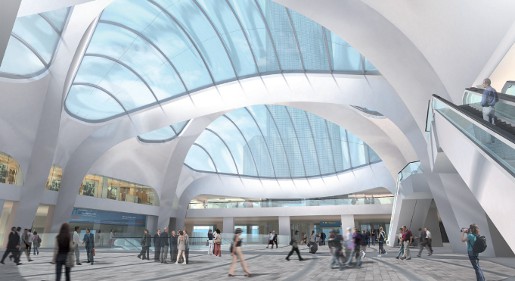Across the globe and throughout history, cities have been the centres of commerce, cultural evolution and innovation. People in cities have tended to be more productive, wealthier, better educated and also more resource intensive. Our researchers are helping think about how to design the cities of the future.

With populations rising, how do we plan, design and manage cities that can cope with increasing pressure on resources while meeting carbon and climate challenge needs? Will our investments in cities and infrastructure today be resilient, i.e. continue to deliver their benefits, in a changing future? Can we design for long-term sustainability unaware of future technologies? How do we re-engineer cities to reduce the carbon footprint by 80% whilst retaining societal wellbeing?
Academics at the University of Birmingham are trying to tackle the needs of future generations today. These interdisciplinary challenges require collaborative solutions and consequently the University of Birmingham is providing leadership by bringing together a team of 35 specialists from the Universities of Southampton, Lancaster, UCL and Birmingham.
Liveable Cities is an ambitious national programme of research to develop a method of designing and engineering low carbon, resource secure, wellbeing maximised UK cities. The team are developing a unique City Analysis Framework that will measure how cities operate and perform in terms of their people, environment and governance, taking account of wellbeing and resource security. The aim is to develop realistic and radical engineering solutions for achieving the UK’s ambitious carbon reduction targets which will be tested in three UK cities.
With engineering solutions comes the challenge of implementation. We are collaborating with the Universities of Newcastle and Leeds to establish the i-BUILD centre. The centre will support the development of our understanding on what new business models are needed to develop our national systems of infrastructure networks (e.g. energy, water, transport, waste, ICT). These systems support services such as healthcare, education, emergency response and thereby ensure our social, economic and environmental wellbeing.
Continued delivery of our civil infrastructure, particularly given current financial constraints, will require innovative and integrated thinking across engineering, economic and social sciences.
Impact
- The i-BUILD centre will deliver these advances through development of a new generation of value analysis tools, interdependency models and multi-scale implementation plans. These methods will be tested on integrative case studies that are co-created with an extensive stakeholder group, to provide demonstrations of new methods that will enable a revolution in the business of infrastructure delivery in the UK.